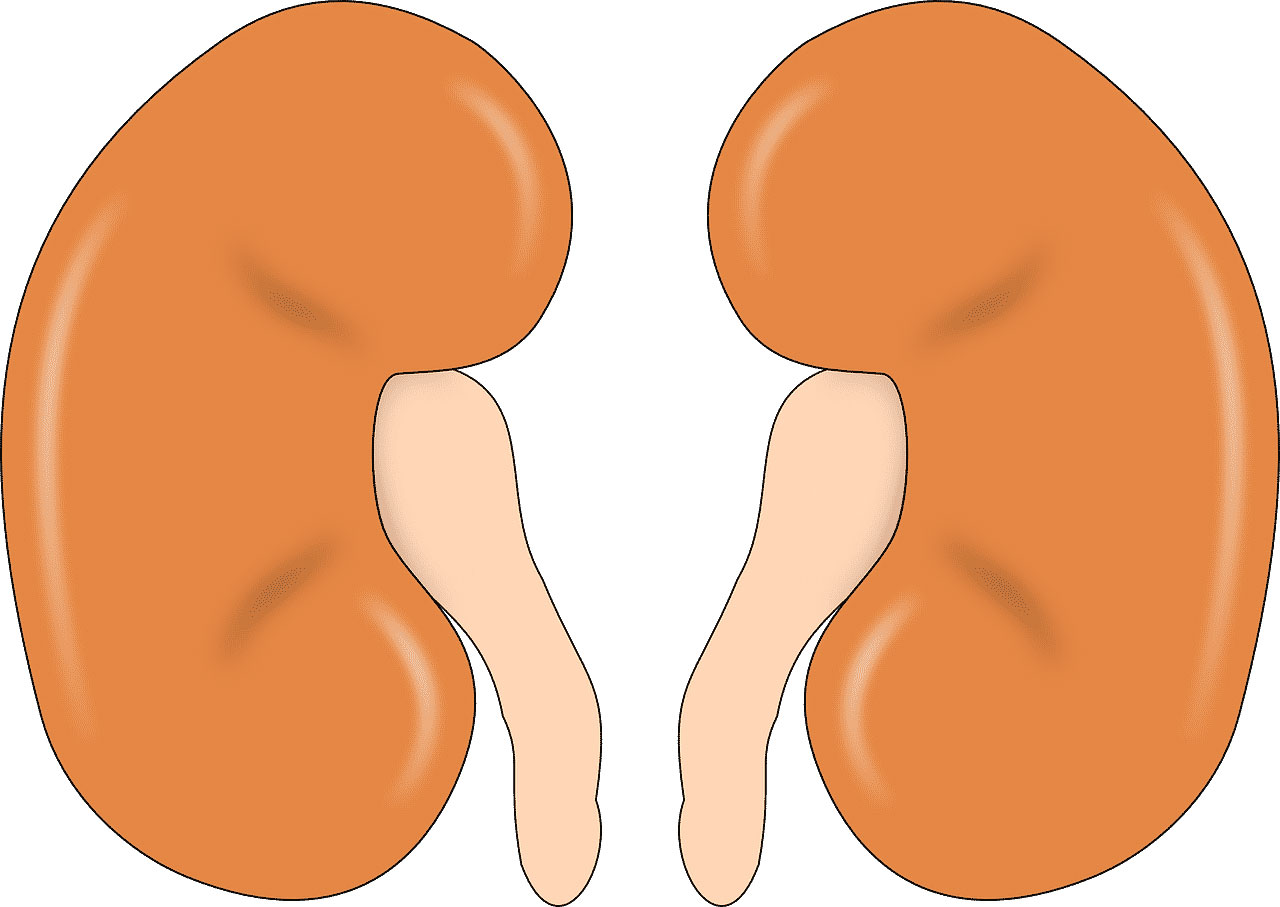Renal failure in dogs
Renal failure in dogs is a widespread disease in the canine population, which can be acute or, more frequently, chronic. Unfortunately, this serious and incurable kidney disease is one of the first factors of mortality in our four-legged friends.
However, it is important that you do not bury your head in the sand and simply cross your fingers that your dog never gets it. It is better to be aware of the danger and to offer your dog a regular veterinary follow-up: an early treatment of the disease can significantly increase his life expectancy in good health conditions.
What is acute or chronic renal failure in dogs?
Renal failure in dogs is a serious disease corresponding to a progressive or sudden impairment of the renal function. Kidney function is a complex process of filtering toxins through the kidneys. When a dog's kidneys deteriorate, filtration is compromised and toxins accumulate in the body.
These toxins are essentially waste products naturally produced by the metabolization of various elements absorbed through the diet, especially proteins. This biological substance is called urea. As the name suggests, it is eliminated in the urine after being filtered by the kidneys.
The kidneys play a crucial role in this process, filtering an average of 1 liter of blood every minute to eliminate urea from the body. When the level of urea in the blood becomes abnormally high due to a lack of efficient filtration, it is called uremia.
While the kidneys' main job is to filter urea, other types of toxins can also enter the body and pass through the renal system. This is the case, for example, of poisons or drugs, which the body must purge in one way or another, generally by using the liver and kidneys.
These toxins, which are very different from urea, can then deteriorate the renal function and cause acute failure. Thus, renal failure can be both the cause of an accumulation of toxins in the body, and its consequence.

Causes of acute or chronic renal failure in dogs
The causes of renal failure in dogs are often multifactorial and of various origins. A distinction is made between chronic and acute disorders, which often have their sources in very different phenomena.
Causes of chronic renal failure in dogs
Usually, chronic renal failure in dogs is caused by premature wear and tear of the kidneys, which is an abnormal, accelerated aging process. It should be noted that while it is normal for a dog's kidney function to deteriorate with age, chronic renal failure always corresponds to a pathological condition, i.e., abnormal aging. This accelerated aging can have several origins.
Congenital malformations of the kidneys (renal dysplasia) may be involved, as well as the existence of a hereditary factor leading to increased fragility of the renal system. Chronic renal failure is also often concomitant with another common metabolic disease in dogs: diabetes.
Finally, chronic renal failure in dogs can also occur after the onset of lesions, which can result from bacterial, parasitic or viral infections, treated or repeated urinary or renal stones, or cancerous pathologies (lymphomas). In this case, it is sometimes the aftermath of acute renal failure. It is not always progressive.
Acute renal failure in dogs
Acute renal failure in dogs occurs suddenly and can usually be easily related to the phenomenon from which it arises. Poisoning is a common cause of acute renal failure. The kidneys, as filtration organs, are highly exposed to many toxic substances of iatrogenic (drug), industrial, environmental or fungal origin.
Anti-inflammatory drugs, heavy metals, hydrocarbons, pesticides, and even certain foods, are all elements that can cause intoxication resulting in acute renal failure. Kidney damage caused by poisoning is not always reversible, and the dog may subsequently suffer from chronic renal failure for life.
Poor hydration, poor circulation or infectious diseases are also causes to consider. More rarely, a physical trauma, such as a shock, a car accident or a fall, can partially or completely destroy the kidneys.
Symptoms of acute and chronic renal failure in dogs
The symptoms of acute renal failure in dogs are sudden and virulent, while those of chronic renal failure are silent in the early stages of the disease and then appear gradually over time, sometimes after several years. In chronic renal failure, the first signs of the disease usually appear when two-thirds of the kidneys are already severely damaged and no longer functioning.
Before this stage, the dog usually has no symptoms, because the healthy kidney tissue is able to compensate for the deficiencies in the affected tissue. The first clinical sign of the disease often goes unnoticed, as it is a simple excessive thirst, usually associated with excessive urine output.
Gradually, the kidneys stop producing the hormones necessary for the production of red blood cells, resulting in anemia, which is manifested by fatigue, weight loss, lack of energy and appetite. In the final stage, chronic kidney disease manifests itself as digestive problems, including diarrhea and vomiting, eye damage, mouth abscesses, and bad breath that typically smells like ammonia.
This is followed by nervous disorders (ataxia) and abdominal effusions (ascites), and the dog fatally falls into a coma and dies. In the case of acute renal failure in dogs, the onset of the most severe symptoms is sudden and much more rapid.
The dog may very quickly suffer from diarrhea and vomiting, and develop more or less marked nervous disorders. If left untreated, coma and death are often unavoidable, and occur within a very short time.
In fact, it is important to note that acute renal failure in dogs is a true veterinary emergency: your dog's days, or even hours, are numbered if he is not treated as soon as possible.

Treatment and prognosis of acute and chronic renal failure in dogs
The treatment of canine renal failure differs depending on the form of the disease. Acute forms are sometimes reversible when the cause is treated, while chronic forms are usually incurable. The treatment of acute renal failure depends on the cause identified by the veterinarian. In case of intoxication, the dog's body should be supported and sometimes its blood should be cleaned artificially.
Dialysis may be used to filter the dog's blood and remove toxins so that they do not reach the kidneys and stagnate in the body. The dog is usually kept in the hospital and perfused to monitor its hydration and the occurrence of potential complications.
When acute renal failure is due to bacterial or parasitic infections, it is the latter that can be targeted with antibiotic or antiparasitic therapy. Since there are no truly effective antivirals in dogs, viral infections are most often treated symptomatically only.
In the case of trauma, surgery may be required to repair the damage, if possible. Chronic renal failure offers very different and much more limited therapeutic possibilities. Indeed, there is no treatment to restore damaged kidney tissue. It is more a question of slowing down their deterioration as much as possible, and increasing the dog's quality of life.
A diet adapted to the dog's condition, low in phosphorus, proteins and salt, is generally essential. In the early stages of the disease, the dog's diet may be sufficient to control the evolution of the disease. As symptoms become more troublesome, the dog may require infusions and medications to alleviate symptoms, especially gastric symptoms.
Unfortunately, regular dialysis and kidney transplants, which are commonly used to treat chronic kidney disease in humans, are not currently available for dogs.
FAQ
What is the difference between acute and chronic renal failure in dogs?
Chronic renal failure in dogs is a silent disease, which progresses for years without causing any symptoms. Unfortunately, it is an irreversible and incurable pathology. Acute renal failure, on the other hand, occurs suddenly and rapidly causes very severe symptoms, which can lead to the death of the animal. It is sometimes reversible, or can leave lesions leading to chronic renal failure.
My dog has kidney failure, what should I do?
If you suspect that your dog is suffering from chronic renal failure, it is essential to take him to a veterinarian who will implement an appropriate treatment and prescribe an adequate diet. Indeed, if this pathology is not treated, it is possible to significantly extend the life of the animal and to improve its quality of life. If you suspect acute renal failure, run to the veterinarian without delay: it is an absolute emergency, and your dog's days, or even hours, are numbered.
Is there a cure for chronic kidney disease in dogs?
No, chronic renal failure in dogs is an incurable disease because it is not possible to repair damaged kidney tissue. However, the disease can be controlled over the long term to improve the dog's quality of life and increase its longevity, sometimes by several years.
Can acute renal failure in dogs be cured?
It is sometimes possible to completely cure acute renal failure in dogs, especially when the cause of the condition is correctly diagnosed and when it is a disorder for which there is an effective treatment. Infectious diseases, poisoning, cancerous diseases, benign masses and kidney or urinary stones are all disorders that cause acute renal failure, which can be completely cured in some cases.
It is important to distinguish between acute and chronic renal failure in dogs, as these two conditions have very different prognoses and treatment options. While chronic renal failure is incurable, but can be controlled in the long term if diagnosed early, acute renal failure is sometimes completely reversible, provided it is treated urgently. Fortunately, it rarely goes unnoticed by owners, as its symptoms are very severe.
Early detection of chronic renal failure is a different story, as its symptoms are almost imperceptible: regular veterinary check-ups are the best way to diagnose it in time.

